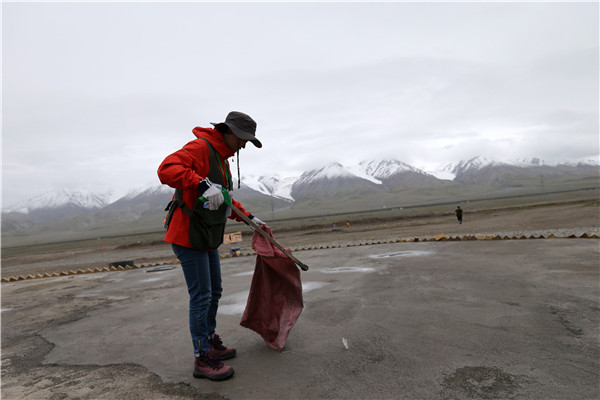The people who protect the plateau know high risks and rewards
 |
|
A volunteer picks up trash that travelers discard in Hoh Xil, Qinghai province. [Photo by Wang Zhuangfei/China Daily] |
The police were outnumbered.
There were 35 illegal miners in the cave in Qinghai province's Hoh Xil.
Yuan Guangming's team had seven officers.
"We were fearless," he recalls.
"We believe justice can overcome evil. I'm dedicated to environmental protection no matter the risks."
The criminals were brought to justice that day.
The 32-year-old, who has worked at the Sonam Dargye conservation station for six years, believes Hoh Xil's listing as a UNESCO World Heritage site on July 7 bodes well for this ecologically fragile swath of the Qinghai-Tibet Plateau.
"More people will know about it," he says.
"I believe they'll do more to protect this pristine land and the Tibetan antelope."
This mission drives him to endure the hardships of mountain patrols for illegal miners and poachers. The thing about hunting hunters is that they tend to have weapons.
Teams of seven typically take 10-day patrols.
They must bring all supplies for wilderness camping.
"We eat a lot of noodles," he says.
Soaring altitudes conjure extreme weather. Roads are rough, when they exist. They spend their days hiking across tough terrain.
And it's rare to get a day off from May to October, Yuan says.














